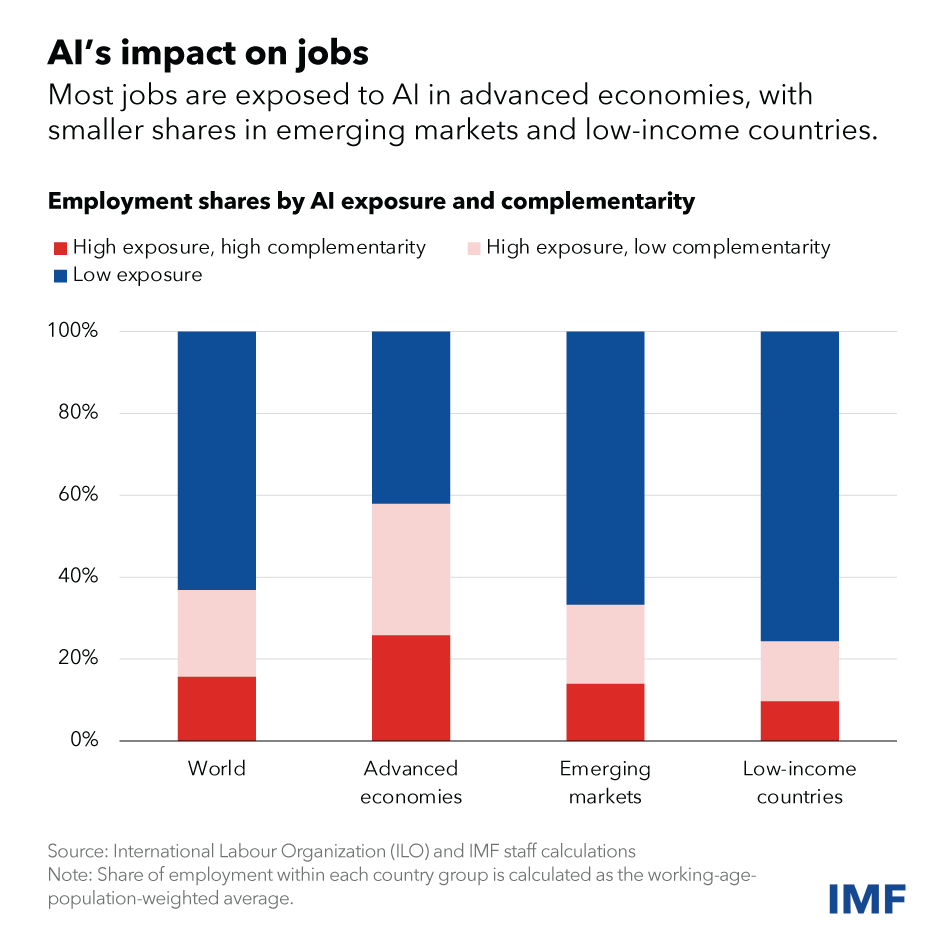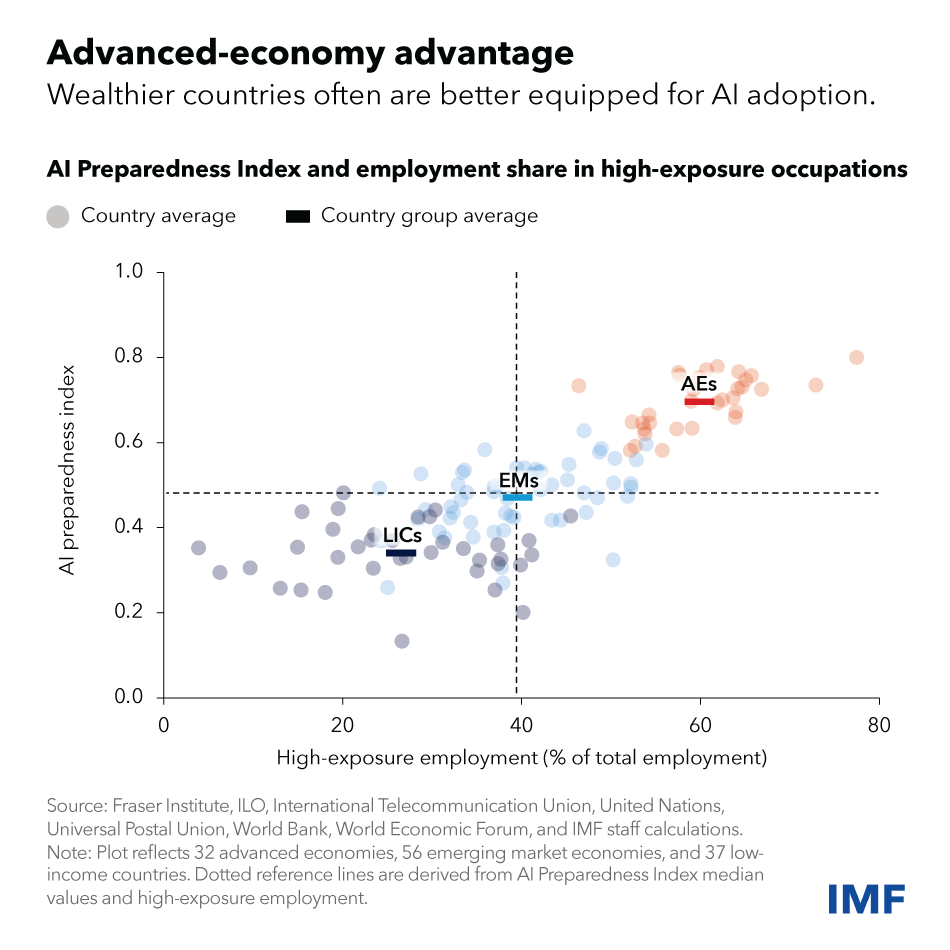The world stands at the precipice of a technological tsunami – AI. While excitement crackles in the air, whispers of fear and uncertainty linger. Will AI be the golden key unlocking unprecedented growth and prosperity? Or will it unleash a wave of jobs displacement and deepen the chasm of inequality?
The IMF, in its recent analysis, dives deep into the potential impact of AI on the global workforce. The findings are complex, painting a nuanced picture of both opportunity and challenge.
AI and Jobs: A Dance of Replacement and Collaboration

Nearly 40% of global jobs face potential exposure to AI. But before you panic, remember – AI isn’t just a job-stealing monster. It’s also a powerful collaborator, ready to boost human productivity.
In advanced economies, where automation and AI tango more readily, about 60% of jobs may feel the impact. The good news? Roughly half of these jobs stand to gain from AI integration, with enhanced efficiency and output. Think doctors using AI-powered diagnostic tools or architects harnessing AI for innovative designs.
However, the flip side exists too. For the other half, AI might automate some tasks currently performed by humans, potentially lowering demand and wages. In extreme cases, some jobs could even vanish.
Emerging markets and developing economies breathe a sigh of relief – their AI exposure is lower, at 40% and 26% respectively. But complacency isn’t an option. Many lack the infrastructure and skilled workforce to truly leverage AI’s benefits, risking a widening inequality gap between nations as AI advances.
Inequality: The Spectre at the Feast
AI could also waltz with income and wealth inequality within countries. Imagine a scenario where skilled workers who embrace AI soar ahead, their productivity and wages skyrocketing, while those left behind struggle to keep pace. Research suggests AI can even help less experienced workers learn faster, further widening the divide.
The effect on wages? It hinges on how AI interacts with high-income earners. If it significantly complements their work, their income could balloon disproportionately. Additionally, productivity gains from AI-adopting firms might boost capital returns, further favoring the wealthy. Both these trends could exacerbate the inequality we already face.
Navigating the AI Maze: Policy Prescriptions for a Smooth Transition
AI is rapidly weaving itself into the fabric of businesses worldwide. Policymakers, like skilled tailors, need to act swiftly to ensure a well-fitting garment for the future.
The IMF, ever the helpful tailor, has crafted an AI Preparedness Index. This nifty tool measures a country’s readiness for AI in areas like digital infrastructure, workforce skills, regulatory frameworks, and innovation.
Think of it as a comprehensive checklist. The human capital and labor market sections delve into education levels, job mobility, and social safety net coverage. The regulation and ethics section assesses a country’s legal adaptability to the digital age and the strength of its governance systems.
Using this index, the IMF evaluated 125 countries. No surprise – wealthier economies, including advanced and some emerging market ones, generally have a head start compared to low-income nations. However, individual country performances vary greatly. Singapore, the US, and Denmark lead the pack, showcasing strong scores across all categories.

Charting the Course: Tailoring AI for Inclusive Growth
Armed with the AI Preparedness Index insights, advanced economies should prioritize AI innovation and integration while crafting robust regulatory frameworks. This ensures a safe and responsible AI environment, fostering public trust.
Emerging market and developing economies, on the other hand, need to lay a strong foundation. Investments in digital infrastructure and skilling up their workforce are crucial. Think high-speed internet access, coding bootcamps, and digital literacy programs.
The AI era is upon us, and it’s not too late to shape its impact. By understanding the complex interplay between AI, jobs, and inequality, and by implementing tailored policies, we can ensure this technological revolution benefits all, not just a select few. Let’s make AI a tool for inclusive growth, not a wedge that drives societies further apart.
Remember, the future is not set in stone. With foresight, collaboration, and proactive policy interventions, we can usher in an AI era that lifts all boats, not just the yachts. The choice is ours.
P.S. Want to delve deeper into the intricate world of AI and the economy? Flip through the December issue of the IMF’s quarterly magazine, Finance & Development!








